How to Determine if You Have a Colorado Car Accident Case
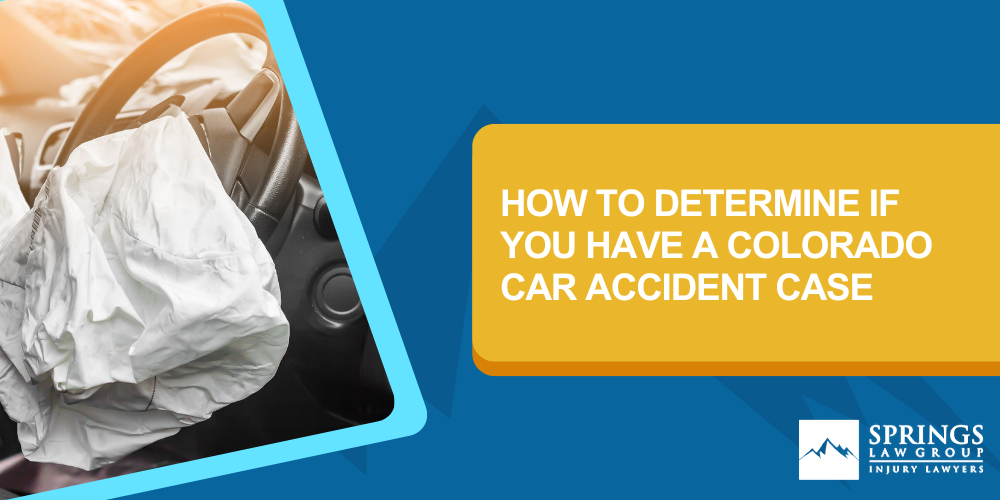
In 2016 there were 27,187 car crashes in Colorado. A car accident is no joke, 298 of those crashes involved a fatality.
While some are lucky to walk away unscathed, many car accident victims end up with lasting injuries and unexpected expenses to pay. If you’ve been involved in a car accident and your bills are piling up, you may have recourse.
It may be time to contact a personal injury lawyer Colorado Springs to help you navigate through a stressful and difficult time. But not everyone has a case.
Keep reading to learn whether your car accident is serious enough to contact a personal injury attorney Colorado Springs.
A Car Accident Civil Lawsuit Involves Damages
The one thing any civil lawsuit has in common is that damages occurred. It may be an injury, damage to property, financial harm, a combination or all of the above.
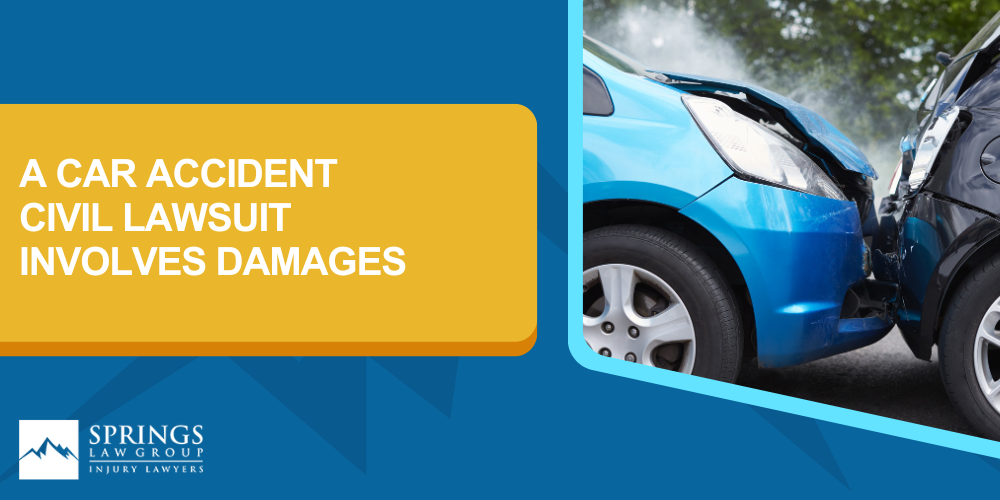
Personal injury claims help drivers and passengers receive the compensation they deserve for their suffering. However, before you contact attorneys in Colorado, you need to know whether if you have a case.
Burden of Proof
The person who bears the burden of proof is the person seeking compensation for damages. The injured party is the plaintiff and he or she must prove that the other driver was responsible for causing the Colorado car accident where the plaintiff suffered injuries and/or damages.
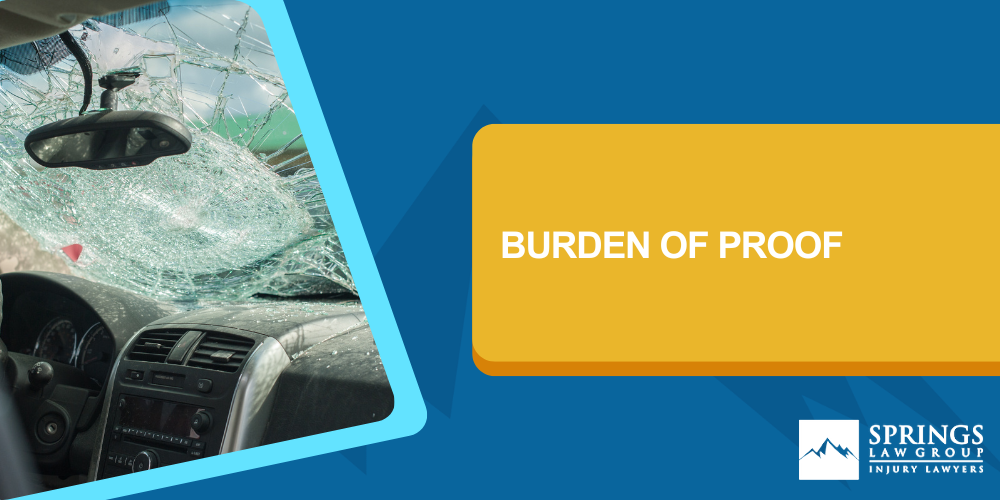
To meet that burden of proof, you need to back up your claims with evidence supporting your version of events. You’ll also need to back up your claims that the car accident caused you physical injury and a loss of wages.
You Need Evidence
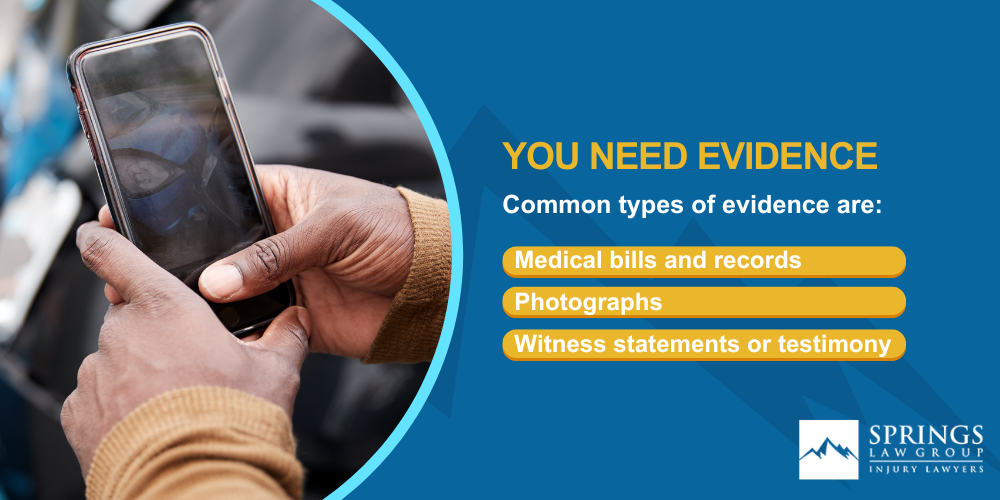
Common types of evidence are:
- Medical bills and records
- Photographs
- Witness statements or testimony
Don’t forget that the defendant may be trying to collect evidence that counteracts against your claim.
Evidence from the Scene of the Accident
Always call the police to report an accident. They can help sort everything out and collect evidence.
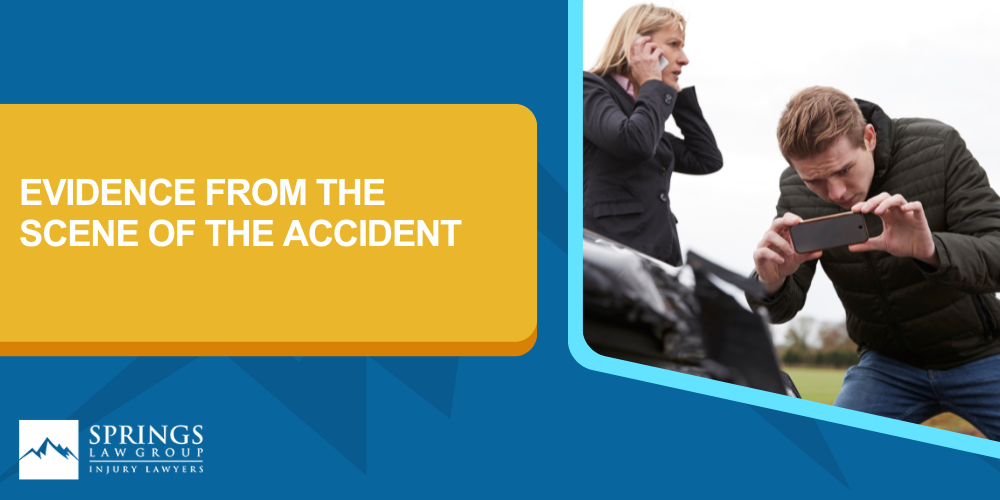
However, the cops aren’t the only ones who should be collecting evidence from the scene of the accident. There are some smarts steps you can take to help corroborate your claims.
Get a Copy of Your Police Report
Always obtain a copy of the police report after an accident. This report provides details of the accident and also lists the investigating officer’s name and badge number.
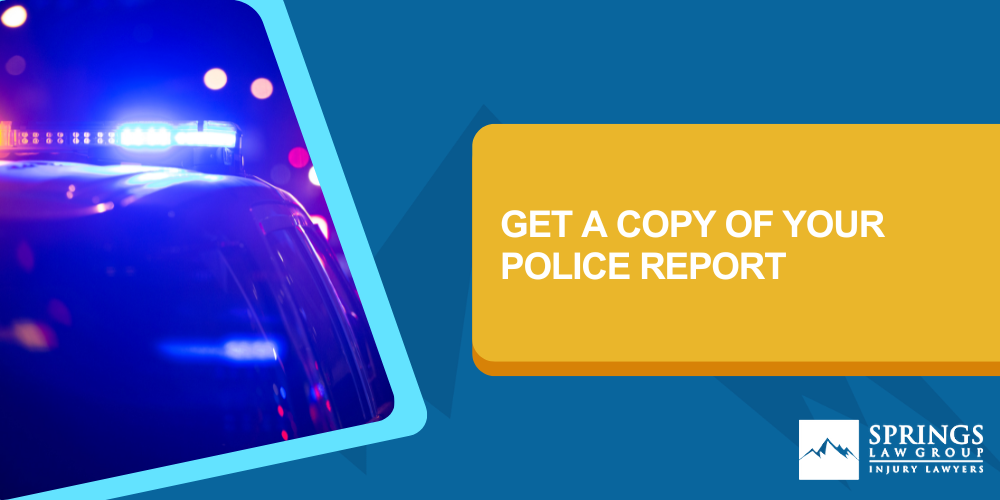
It’s common practice for insurance companies to contact the investigating officer(s) to confirm any statements that you may have made to corroborate your claims.
Collect Your Own Evidence
Always get the name, address, vehicle plate numbers, insurance information, and driver’s license number of any and all parties involved in the accident. Ask if any of the drivers were driving for their employer at the time of the accident.
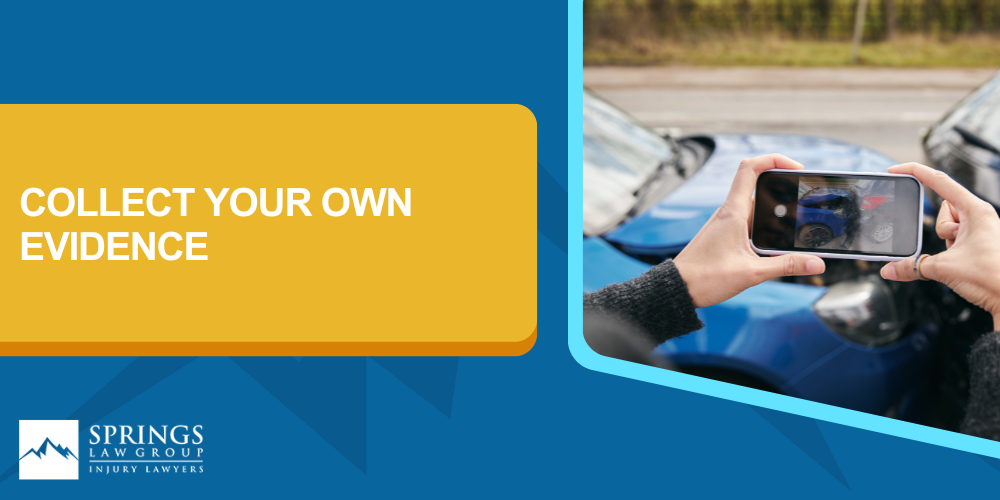
If so, get that employer’s name and contact number.
Take Photos and Get the Names of Potential Witnesses
If you’re able, it’s a smart idea to take your own photos of the accident to use in your personal injury case. While the cops will do their best to compile all the evidence, it helps your case if you have additional evidence to share.
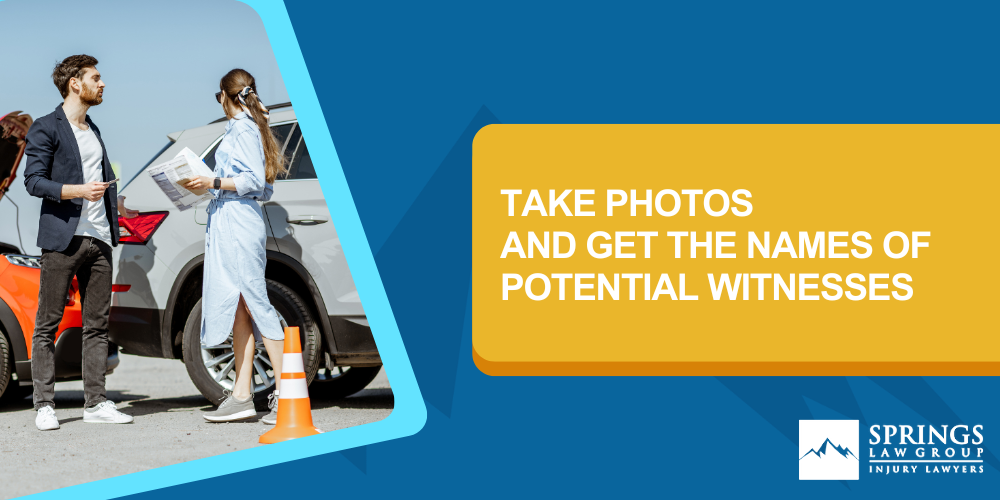
You should also take down the names and numbers of any potential witnesses. You can speak with them later to find out if they will help or hinder your case before you go to trial.
Seek Immediate Medical Attention
If you’ve just been involved in an accident and you may have been injured, always seek immediate attention. Not only because you can ensure you didn’t suffer major injuries but because it will help build a claim against the defendant.
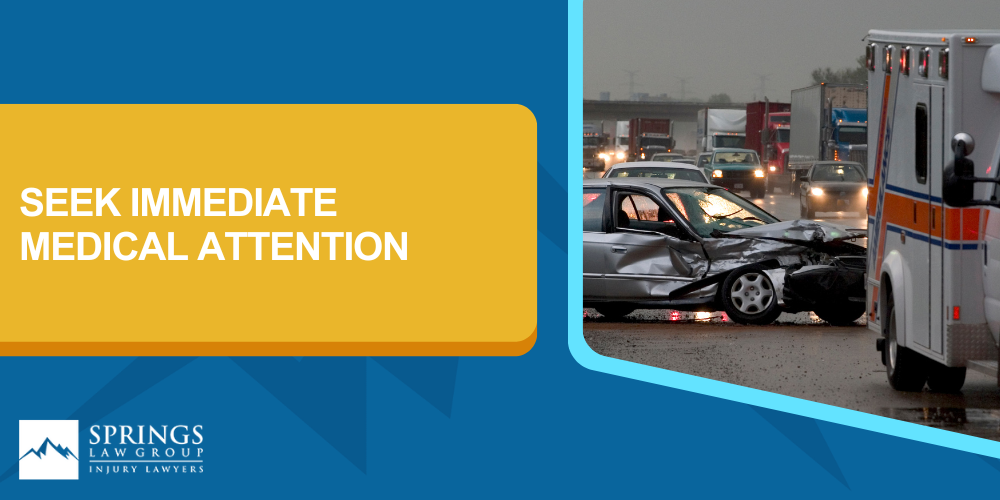
In fact, you may have a difficult, if not impossible time claiming any injuries if you fail to claim them at the time of the accident.
Pre-Existing Injuries
If you do not seek immediate medical attention, it will also be difficult for you to prove that your injuries or health conditions are new, versus any old injuries you may have already sustained.
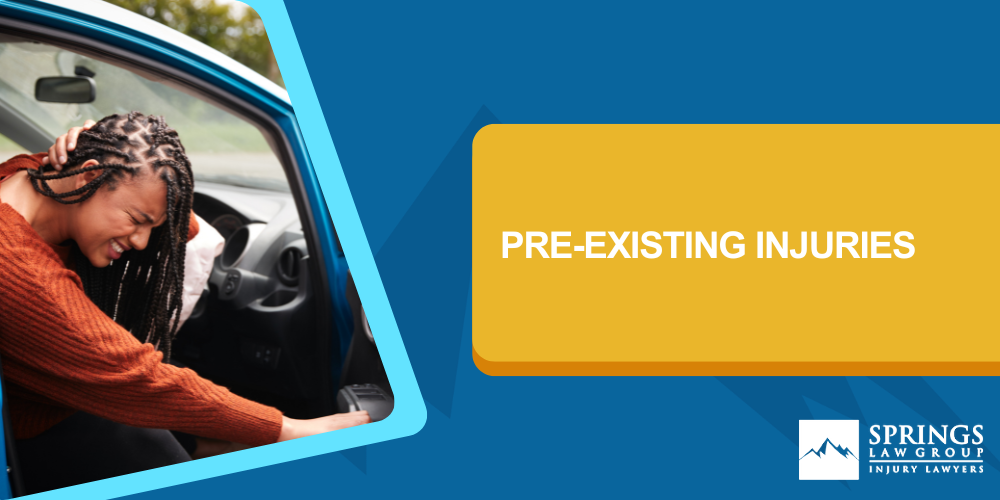
Have your doctor take new x-rays or ultrasounds of the newly injured areas. A comparison of pre and post-accident will help provide evidence that you did sustain damage.
Be Careful What You Say to Others
You’ve probably heard the part in the Miranda Rights being said on television that says, “what you say can and will be used against you in a court of law.” While your words probably won’t land you in jail, they could be used to build a case against you.
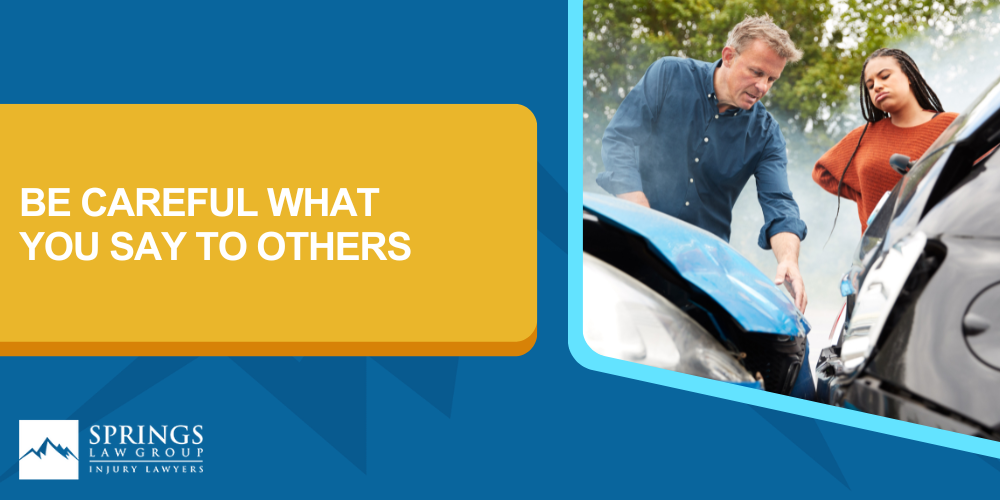
Do not use phrases such as, “it was totally my fault” or “I can’t believe I did that.” However, if you do hear the other driver say something, take note of it.
Keep Good Records
Always keep records of any bills you write out that were the result of your accident. Keep records of ongoing damages. That includes any repairs you needed to make to your automobile.
Record any days and wages that you lost due to your injuries. Make a note if you’ve lost time away from your favorite hobbies and activities because of the accident.
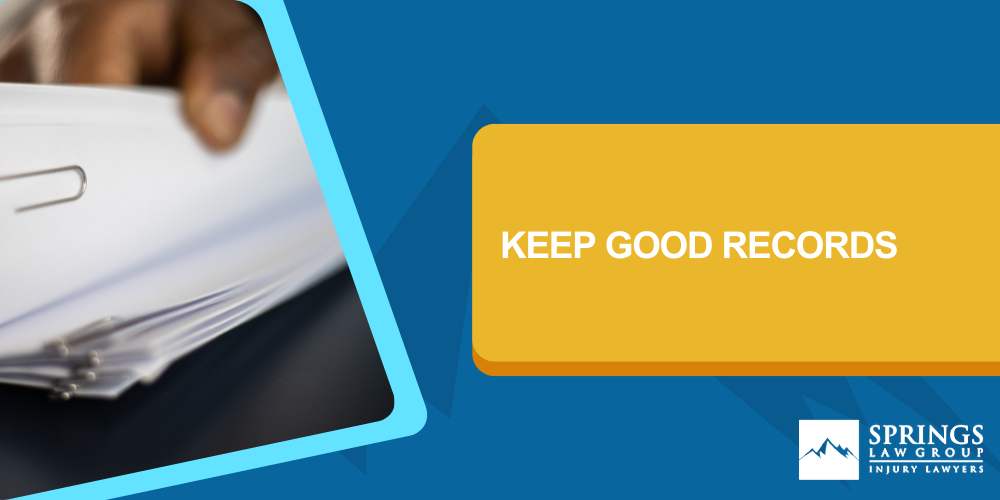
Any visits to medical or mental health practitioners should also be noted and kept track of. The more information you have to share, the better case you can build.
Locate Any Previous Records that Can Help Your Case
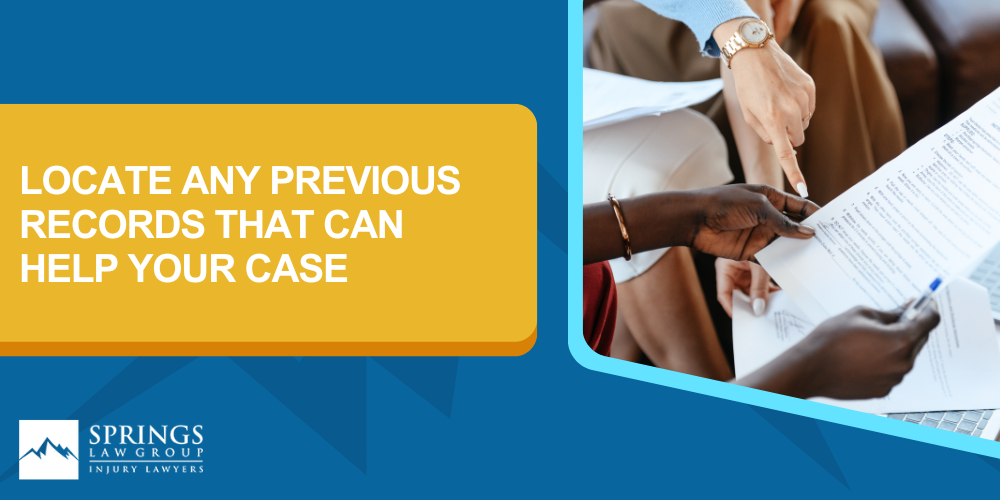
Gather any previous records and bills of visits to your doctor or any repairs or improvements you had made to your automobile prior to the accident. That way, if your car was totaled, you can increase the value given to your vehicle if you have proof that you recently replaced your engine.
What Makes a Good Personal Injury Case
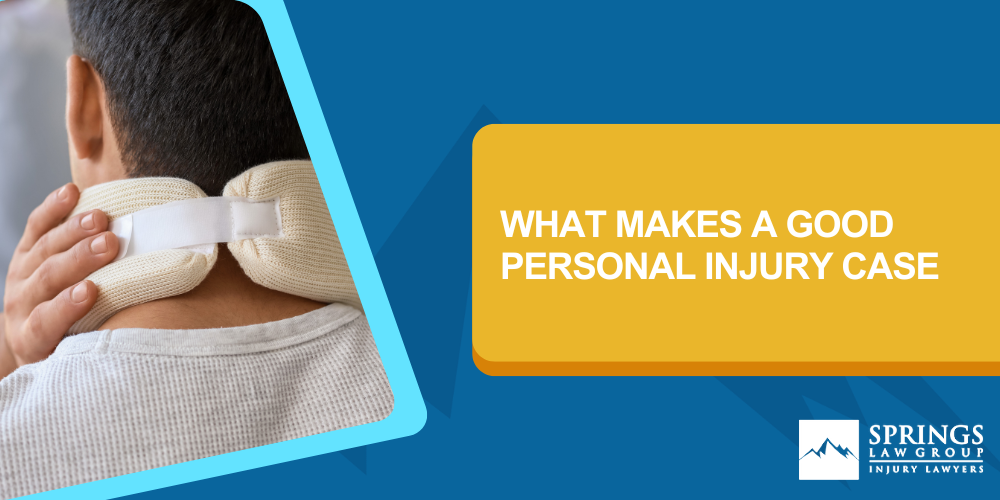
If you were at fault, but your insurance refuses to pay for any medical damages, you may have a claim. You also have a claim if you weren’t at fault but your insurance company either refuses to pay or will only compensate you a small amount.
Loss, Serious Injury or Death
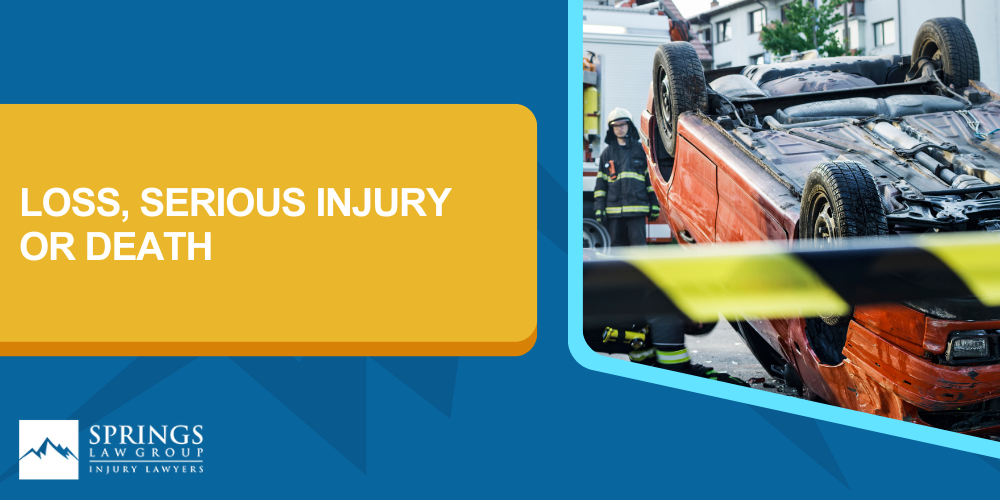
If you suffered serious loss or injuries as a result, you have a good case to get help seeking compensation. Especially if someone died or you lose wages as a result of your injuries.
Disputed Accidents
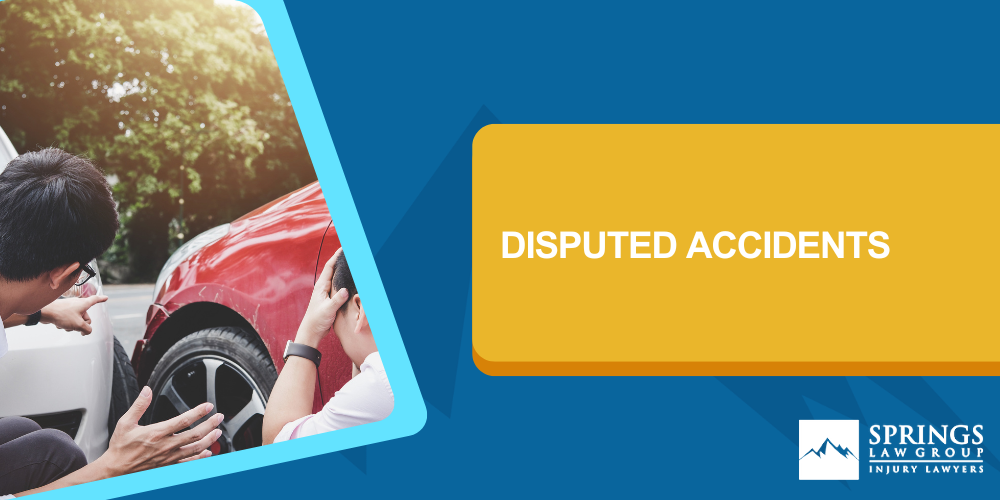
If there is a dispute over who is at fault or both parties cannot reach a settlement, it may be a good time to find a personal injury attorney to help sort out everything.
Contact Us Today
Most people after a car accident feel scared and confused. It’s not always clear whether they have a viable case or not.

And if they do, most need help recovering lost wages to help them get back on their feet. We can help. Click here to schedule a consultation with one of our attorneys.
